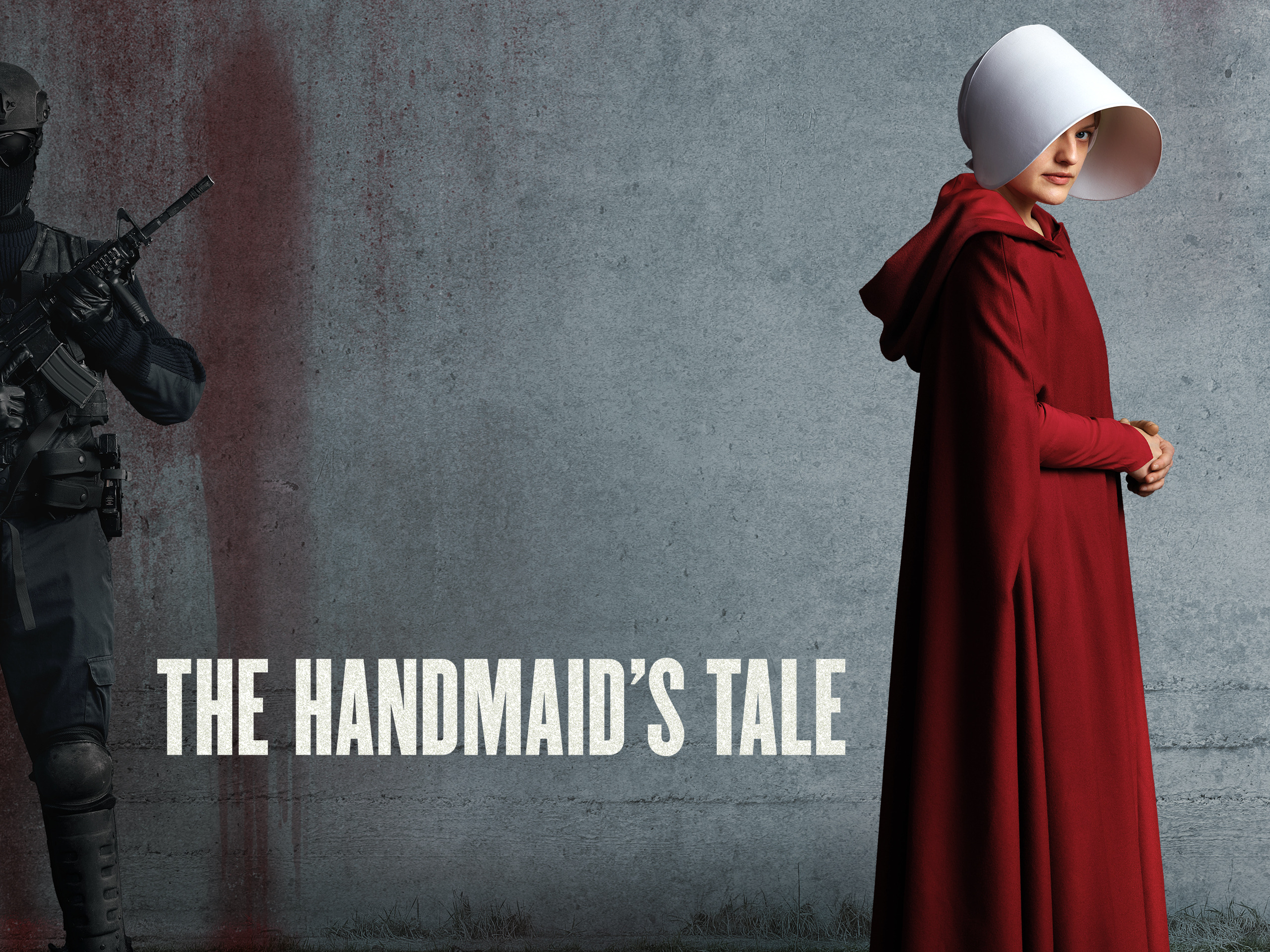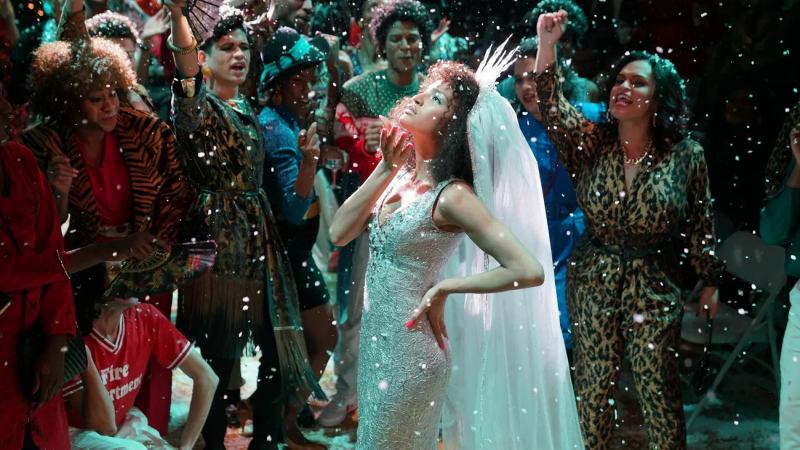Social Commentary in TV Shows: Exploring Themes, Messages, and Cultural Relevance
Television has long been a powerful medium for reflecting societal issues, and many TV shows have used their platform to comment on cultural, political, and social issues. Through the lens of fiction, these series engage viewers with themes that are both thought-provoking and often uncomfortable, offering insights into various aspects of human life, identity, and contemporary society. In this exploration, we’ll analyze some notable TV shows that have delivered impactful social commentary, discussing the themes, messages, and cultural relevance embedded in their stories.

The Handmaid’s Tale (2017–Present)
Social Commentary: Gender Inequality, Religious Extremism, and Autocracy
Themes and Messages:
Based on Margaret Atwood’s novel, The Handmaid’s Tale is set in a dystopian future where a theocratic government has stripped women of their rights, forcing them into servitude as “handmaids” whose sole purpose is to bear children for the ruling class. The show critiques gender inequality, the erosion of women's rights, and the dangers of religious extremism.
Cultural Relevance:
Released during a time of rising political tension and debates about reproductive rights, The Handmaid’s Tale resonates deeply with modern conversations about women’s autonomy and the control of bodies through oppressive laws. The imagery of the handmaids' red robes and white bonnets became a symbol of resistance for real-world feminist movements, making the show an impactful and timely commentary on political and social struggles for equality.
Black Mirror (2011–2019)
Social Commentary: Technology, Surveillance, and Humanity’s Relationship with Media
Themes and Messages:
Each episode of Black Mirror explores a different facet of modern society, often delving into the dark side of technology and its impact on individuals and society. Episodes like “Nosedive” tackle the dangers of social media obsession, while “USS Callister” critiques toxic masculinity and digital escapism.
Cultural Relevance:
With its satirical approach to tech-driven futures, Black Mirror offers a cautionary tale about the unchecked power of social media, surveillance capitalism, and technological advancement. The series forces us to question the ethical implications of technology, social dynamics, and how we relate to our digital selves, serving as both entertainment and a stark reminder of the potential consequences of our technological trajectory.
The Wire (2002–2008)
Social Commentary: Systemic Inequality, Corruption, and the War on Drugs
Themes and Messages:
The Wire is often hailed as one of the most nuanced portrayals of systemic issues within American cities. It follows multiple storylines, including the police force, the drug trade, the education system, and the working-class struggle in Baltimore. Through these narratives, the show tackles urban poverty, drug addiction, political corruption, and the failure of institutions to address these complex issues.
Cultural Relevance:
At its core, The Wire exposes the intersection of race, class, and law enforcement in the U.S., presenting a gritty, realistic portrayal of inner-city life that remains relevant to ongoing debates about police reform, the criminal justice system, and the socioeconomic disparities that fuel cycles of poverty and crime. Its unflinching realism and character-driven storytelling continue to influence how TV portrays urban life and the complexities of social issues.
Orange Is the New Black (2013–2019)
Social Commentary: Criminal Justice Reform, Gender, and LGBTQ+ Representation
Themes and Messages:
Set in a women’s prison, Orange Is the New Black explores the lives of its diverse characters, delving into issues of racial inequality, class, mental health, sexual identity, and the criminal justice system. The series also brings attention to the intersectionality of women's experiences, showing how race and class influence the way they are treated by the system.
Cultural Relevance:
The series sparked important conversations about the prison-industrial complex, the flaws within the U.S. penal system, and the systemic challenges faced by marginalized groups. By highlighting stories of women from all walks of life, including LGBTQ+ characters, Orange Is the New Black also contributed to a more inclusive representation of gender and sexuality on screen.
The Simpsons (1989–Present)
Social Commentary: Politics, Consumerism, and American Society
Themes and Messages:
The Simpsons has been a staple in American television for over three decades, offering sharp social commentary on everything from politics to family dynamics. Through its satirical tone, the show critiques everything from the absurdities of consumer culture to political corruption, education, and the flaws of the American dream.
Cultural Relevance:
As one of the longest-running animated series, The Simpsons has had a significant impact on popular culture, influencing both comedic and serious discussions about social issues. Its irreverent humor and willingness to tackle sensitive topics with satire have allowed it to remain relevant, even as it evolves to reflect the changing socio-political landscape. The show often mirrors the disillusionment many people feel toward institutions and systems of power, making it an enduring cultural touchstone.
13 Reasons Why (2017–2020)
Social Commentary: Mental Health, Bullying, and Suicide
Themes and Messages:
Based on the novel by Jay Asher, 13 Reasons Why follows a teenage girl, Hannah Baker, who leaves behind a series of cassette tapes detailing the reasons she chose to end her life. The show tackles heavy issues like mental health struggles, bullying, peer pressure, and the impact of societal expectations on youth.
Cultural Relevance:
The show sparked important discussions about suicide, depression, and the dangers of bullying in schools. While it received both praise for opening up dialogue around mental health and criticism for its portrayal of sensitive topics, 13 Reasons Why ultimately encouraged conversations about youth mental health, coping mechanisms, and the importance of support systems.
The Good Place (2016–2020)
Social Commentary: Ethics, Morality, and the Afterlife
Themes and Messages:
The Good Place explores the concepts of right and wrong, ethics, and personal growth through the lens of the afterlife. The show raises questions about what it means to be a good person, how we treat others, and whether our actions can truly be redeemed. Its unique premise blends comedy with deep philosophical inquiry, offering viewers a chance to reflect on their own moral decisions.
Cultural Relevance:
In an era where ethical dilemmas and personal accountability are ever-present in public discourse, The Good Place uses humor to explore complex topics such as morality, existentialism, and the importance of self-improvement. Its imaginative approach to the afterlife and its focus on character redemption provide an accessible entry point for examining deeper questions about our lives and how we contribute to society.
Atlanta (2016–2022)
Social Commentary: Race, Identity, and Class in America
Themes and Messages:
Atlanta is a unique series created by Donald Glover that explores the lives of two cousins navigating the Atlanta rap scene. It blends surrealist elements with biting social commentary on race, class, and identity, often addressing how these issues impact the Black experience in America.
Cultural Relevance:
Through its unconventional storytelling, Atlanta interrogates the complexities of the American Dream, racial stereotypes, and the expectations placed on Black individuals in predominantly white spaces. The show delves into both the personal and systemic challenges faced by its characters, offering a nuanced portrayal of contemporary Black life and its intersections with class and culture. Atlanta is particularly significant for its ability to merge social issues with humor, fantasy, and profound emotional moments, making it a critical exploration of race and identity in the 21st century.
Pose (2018–2021)
Social Commentary: LGBTQ+ Rights, the AIDS Crisis, and Gender Identity
Themes and Messages:
Pose tells the story of the ballroom culture in New York City during the 1980s and early 1990s, highlighting the lives of transgender women and LGBTQ+ people of color. The series focuses on the intersection of gender identity, race, and the LGBTQ+ experience, particularly during the HIV/AIDS epidemic.
Cultural Relevance:
Pose has been praised for its authentic portrayal of the struggles faced by the LGBTQ+ community, especially trans women of color, during a time of widespread discrimination and the AIDS crisis. The show highlights themes of resilience, love, and survival, while also spotlighting the importance of safe spaces and chosen families. Pose’s representation has helped to elevate often marginalized voices in media, making it a critical series in the conversation around LGBTQ+ rights, gender identity, and the ongoing fight against discrimination.

The Crown (2016–Present)
Social Commentary: Power, Politics, and the Role of Monarchy
Themes and Messages:
The Crown offers a dramatized portrayal of the reign of Queen Elizabeth II, focusing on her personal and political struggles as she navigates the responsibilities of the British monarchy. The series explores themes of power, duty, family, and public perception, with a particular focus on the intersection of personal and political life.
Cultural Relevance:
The Crown invites viewers to reflect on the role of monarchies in modern society and the evolving relationship between the British royal family and the public. The show raises questions about the pressures of public life, the challenges of leadership, and the balance between personal desires and public duties. While fictionalized, The Crown reflects broader discussions about power, privilege, and governance in contemporary society.
Conclusion
Television continues to be an influential platform for social commentary, tackling complex issues and prompting conversations about the world around us. Whether exploring gender equality, racial injustice, or the impact of technology, these shows offer not only entertainment but also valuable insights into society's most pressing challenges. By engaging with TV shows that incorporate meaningful social commentary, audiences are invited to reflect on their own beliefs, values, and actions within a broader cultural context.












